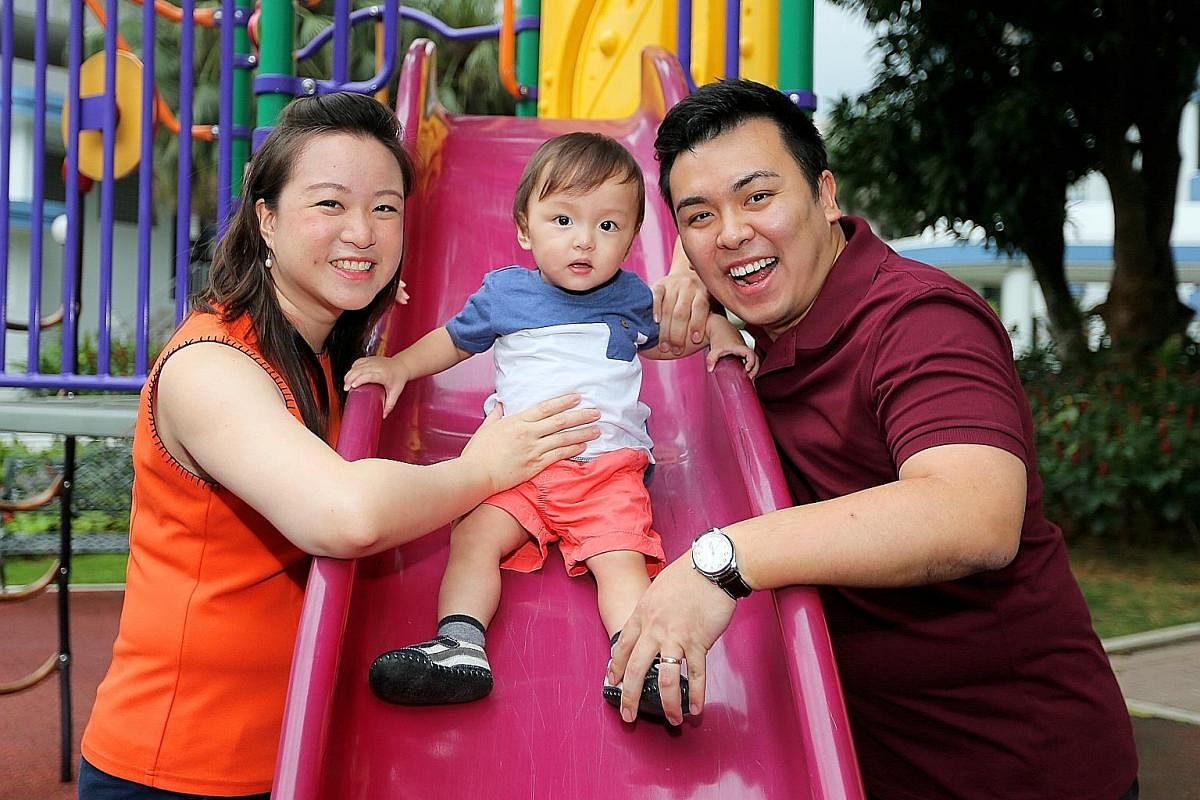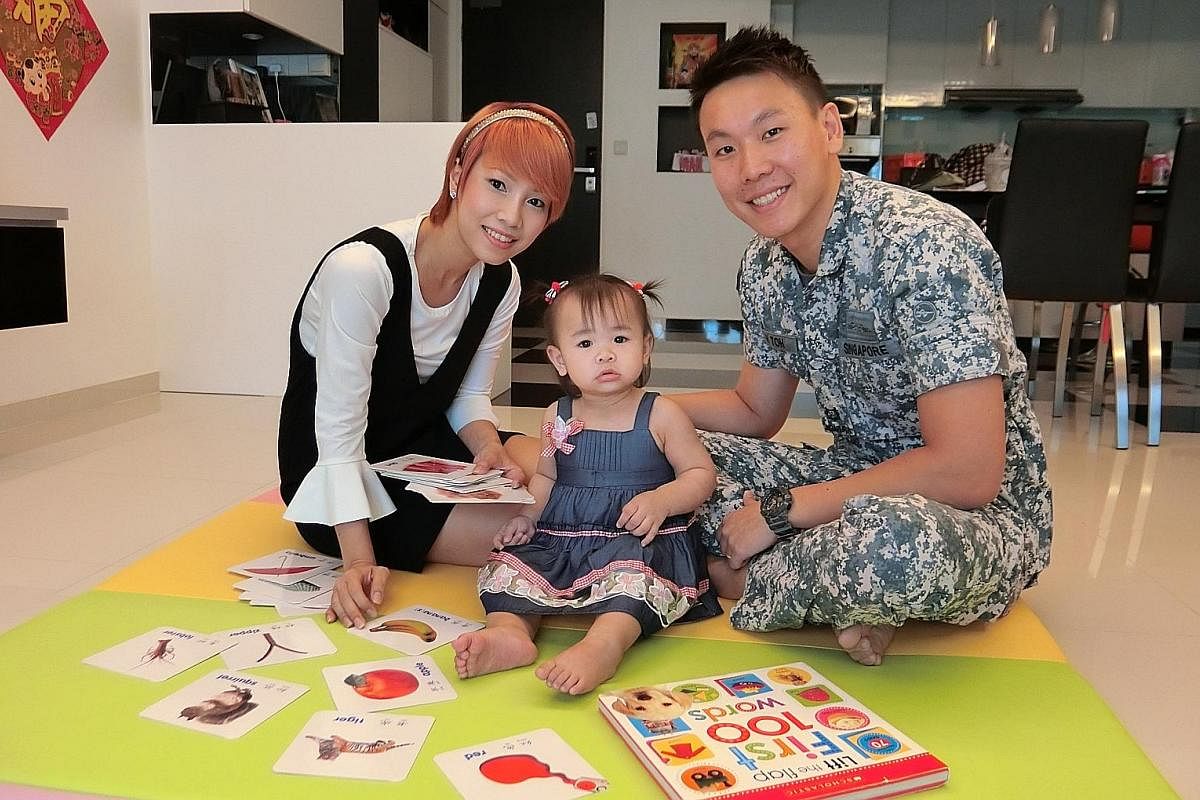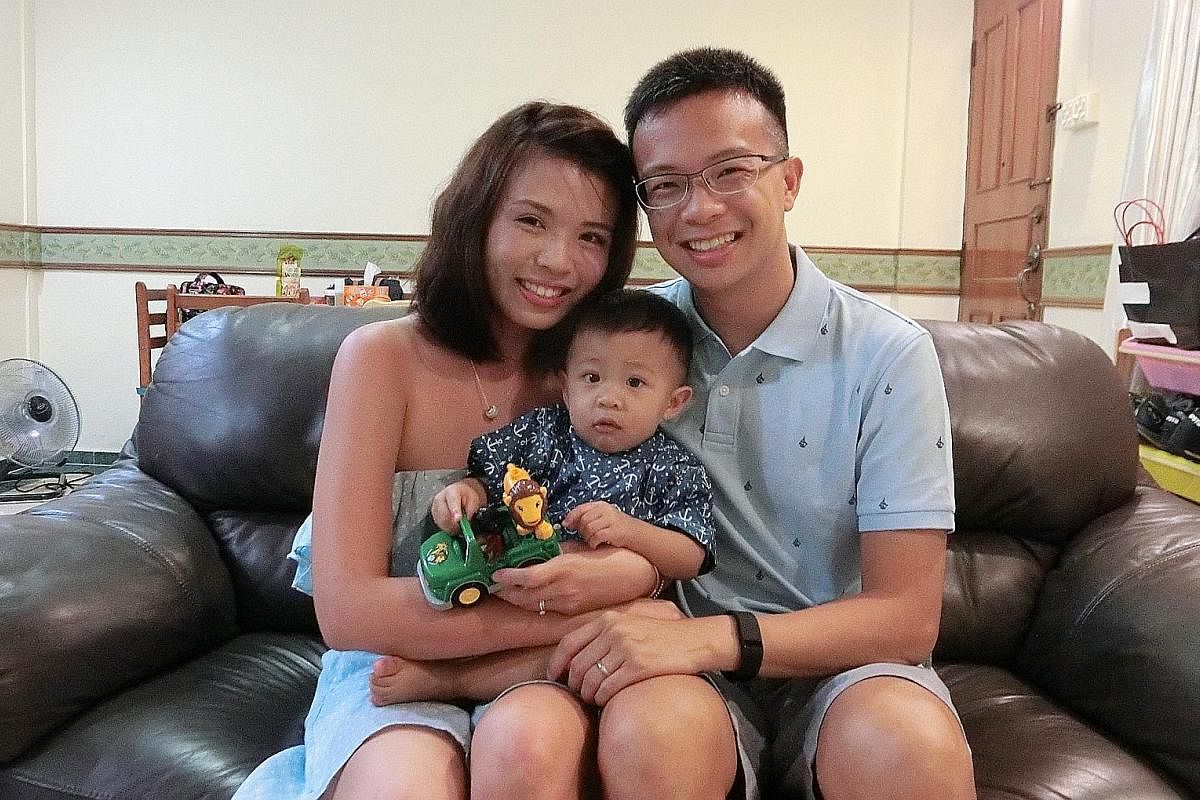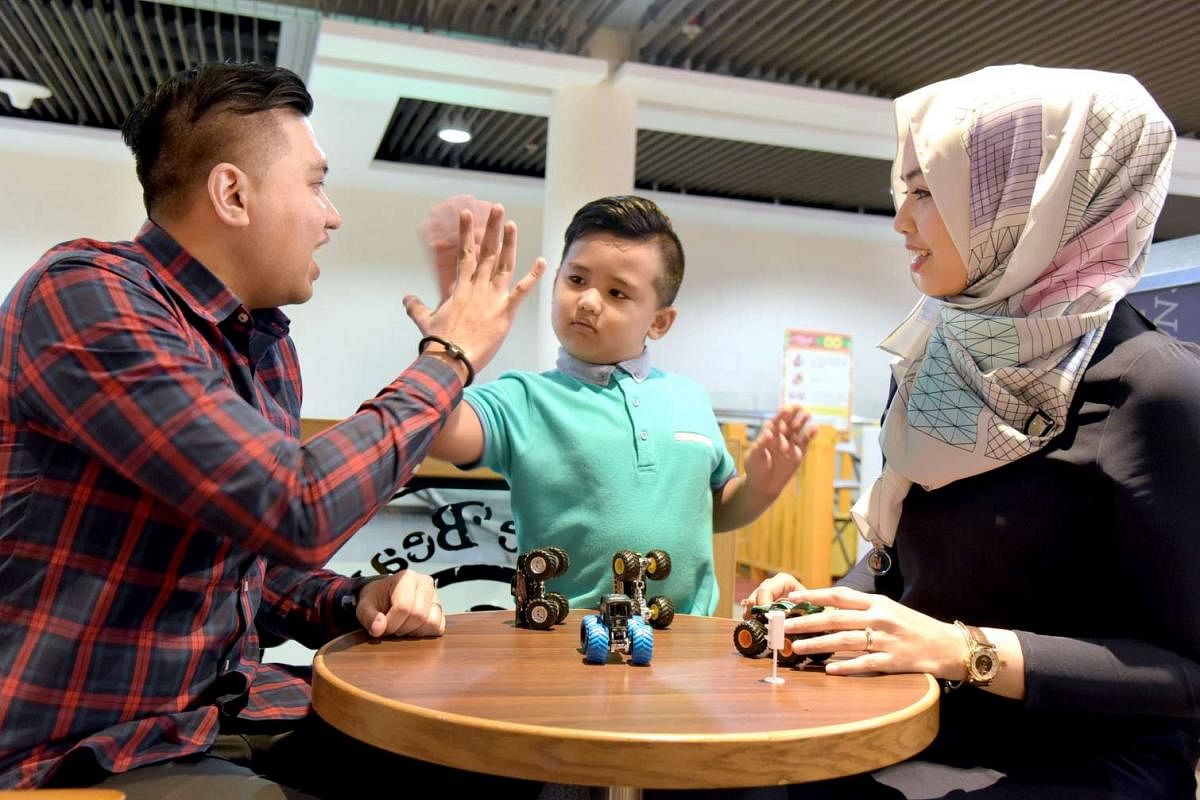Millennial fathers are getting more involved in parenting
Young dads in their 20s to early 30s form a growing group trying to get more involved in their children's lives




After six years of working in finance, Mr Jerry Tan, 31, quit.
His hours were often long and unpredictable, taking a toll on his social life and curtailing time spent with his wife Grace Ng, 31.
After switching careers early last year, Mr Tan now works in the public sector, specialising in mergers and acquisitions for one of Singapore's economic development agencies. His hours are regular and he works fewer weekends.
Although his wife, a legal counsel at a statutory board, was not yet pregnant when he made the switch, prioritising family was a factor in his decision.
Mr Tan says: "It was for the sake of stability for the family. If we had a child, I wanted to be around, especially in the first few years, when building a relationship with my child."
The couple now have a one-year-old son, Luke.
Mr Tan and many others in the millennial age group, ranging from their 20s to early 30s, are part of a growing group of fathers who are likely to be more involved in their children's everyday lives than many dads in previous generations.
Although there seems to be a trend of more fathers being handson parents in general - possibly the result of more mothers entering the workforce and having less time for child-rearing - the phenomenon seems to be more pronounced among millennials, some of whom are more comfortable switching up traditional gender roles in the household.
Mrs Helen Lim-Yang, a board member of I Love Children, a voluntary welfare organisation that advocates pro-family causes, says she sees more fathers choosing to be hands-on in parenting, especially millennial dads.
"Nowadays, young men show up at parent-teacher conferences or take leave for their child's first day at nursery. It doesn't have to be mums doing it."
Why some millennial dads are more hands-on than others may also be attributed in part to them either rejecting or wanting to replicate family experiences while growing up, adds Mrs Lim-Yang, who works with millennials as a consultant at Rohei, a consultancy that trains and supports adult learners.
While changes in the workforce helped encourage hands-on parenting, there are other factors at play for millennial dads.
Dr Jonathan Ramsay, a senior human resources lecturer at SIM University's School of Human Development & Social Services, says: "Although research findings are mixed, some studies show that millennials do differ from previous generations in terms of their attitude towards work."
While many companies have implemented flexible work arrangements for families, parenting choices are not necessarily the motivation for millennials.
Dr Ramsay says: "It's worth noting that research doesn't provide much evidence that millennials' drive for better work-life balance is particularly driven by parenting concerns. The desire for more personal and leisure time seems to precede major life events such as getting married or having children.
"Still, it's undeniable that stereotypical gender roles have changed over time. More mothers are working and the responsibility of raising children is being shared more equitably within families," he adds.
Mrs Lim-Yang says: "These days, at the workplace, there can be more females than males. On the home front, too, millennial dads seem to realise that the load can be shared or be more equal."
Mr Tan is one such millennial with an egalitarian approach.
"I don't subscribe to gender stereotypes in terms of the notion, for instance, that guys should not change diapers. It's my way of getting to know my son better," he says.
He and his wife "team up" to care for their son, including taking turns to feed or read to him. The couple have a domestic helper and both their mothers care for Luke while they are at work.
For millennial dad Kody Toh Guan Hong, 32, work-life balance is a struggle given his job as a major in the Republic of Singapore Navy. He occasionally works on board warships deployed overseas for up to six weeks each time.
This, however, has not deterred him from being a hands-on dad. He has been bathing and feeding his daughter Rayna, aged 15 months, since she was a few days old. He also takes her to a parent-accompanied swimming class.
His own father's more traditional parenting style influenced him.
Maj Toh's father, a 63-year-old contractor in construction, was the breadwinner, while his mother, a 60-year-old housewife, looked after the kids.
"My father was very busy with work, but he would try and take us for excursions every weekend when we were young," says Maj Toh, who has two older sisters. "He has good intentions, but was not so expressive. I would have liked for my dad to have advised me more while I was growing up.
"I make up for what I feel was lacking by being more communicative and hands-on," he adds. He is married to Ms Joanna Khoo, 31,who is on a five-month sabbatical from her job as a service manager in a bank.
For Mr Yonatan Ng, 30, being a hands-on parent allows him to be a role model to his 16-month-old son, Noah.
"Noah is going to grow up and see how I treat him. In the future, he'll be doing the same thing," says the physical education teacher. "I also feel that I am easing some of my wife's burden."
When his wife Eunice Tan, 27, a childcare centre administrator, was pregnant, Mr Ng trawled through online pregnancy forums to find out more about the topic. They take turns doing household chores - he sometimes cooks and does the washing up, including cleaning his wife's breast pump.
While he has seen more dads like him at diaper-changing stations, he still feels career pressure.
For instance, he took only five days of paternity leave when Noah was born, though he was entitled to two weeks, partly because he did not want to lag behind in his Postgraduate Diploma in Education course.
"Most Singaporeans seem to prefer that people put in as much time as possible at work. It was self-imposed pressure. You do not want to look bad in front of others," he says.
Juggling work and child-rearing has been a familiar struggle for generations of mothers, even as more fathers feel the same pressure.
Mrs Kathleen Wong-Mark, 63, a retired teacher who has two adult children, says: "Taking care of the children in the past mostly fell to my girlfriends and me.
"Today's climate is quite different, with more emphasis on coparenting and sensitivity to one's spouse."
It is such a climate that has helped Ms Ng and Mr Tan along.
"We're influenced by the people around us - slightly older parents whose kids are older than our son," Ms Ng says. "The dads are very involved."
Reversing roles to support each other
Being an airline pilot with an irregular schedule means that Mr Darnie Dzulkaflee, 34, has to be conscientious about maximising the time he gets to spend with his wife and fiveyear-old son.
This means even grocery-shopping after his long-haul flights, during which he picks up snacks and fruit overseas to bring home.
Back in Singapore, he supervises homework for his son, Reyan Matin Darnie, who is in his second year of kindergarten.
Mr Darnie also does chores such as cleaning the toilet and doing the laundry. He and his wife, primary school teacher Marliana Mohamed Rashid, 33, do not have a domestic helper.
His ease with doing housework initially surprised his in-laws, but it came naturally to him after living in a hostel during his four-year computer engineering course at Nanyang Technological University, and later when he trained as a pilot in Perth for 11/2 years.
"Getting the chores done ensures we have quality time with the family," says Mr Darnie, the eldest of four sons.
"It's also important to help relieve the stress on my wife during the times I'm away, which can be almost two weeks at a stretch."
He says he and Ms Marliana "do not have specific roles as mum and dad, or as husband and wife" .
"We reverse traditional gender roles to support each other. For example, I go to the wet market when I'm home, and she's head of the home when I'm not around."
He also supports his wife in other ways, for example, when she studied part-time for a Bachelor of Arts in Malay language and literature for 31/2 years while also working. Some family members had asked her why she worried about upgrading herself when she was so busy as a wife and mother.
Another way the couple fosters closeness as a family is by setting resolutions at the end of every year. Mr Darnie says: "We reflect on how to improve ourselves."
In recent years, they have succeeded in their resolutions to save more and to teach Reyan Matin to read.
Venessa Lee
Join ST's Telegram channel and get the latest breaking news delivered to you.
A version of this article appeared in the print edition of The Sunday Times on February 05, 2017, with the headline Millennial fathers are getting more involved in parenting. Subscribe

